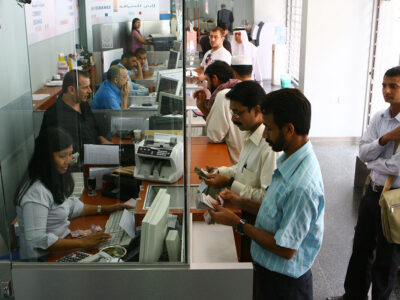Royal grants and household allowance more than fully cover fiscal reform costs on Saudi households, according to Bank of America Merill Lynch’s Global Emerging Markets Weekly report.
In the report, Bank of America Merill Lynch MENA economist Jean-Michel Saliba noted that the royal grant and household allowance disbursements “more than fully shelter” Saudi households from the costs of fiscal reforms, which should “allow real private consumption growth to hover around 2017 levels.”
In the future, the report predicts that Saudization efforts and targeted stimulus should support consumption, particularly given the fact that the bulk of reforms directly impact Saudi households.
Additionally, the report noted that the introduction of the household allowance in December is “less generous” than the initial guidance in the fiscal balance programme, which proposed payments of up to SR 1,200 a month. The report estimates that 67 percent of eligible households in the kingdom are receiving the full coverage amount of SR 900 per month.
According to Saliba, the combined government measures will minimise the impact of overall earnings, with average earnings declining by SR 119 per month.
“Expatriate households will, however, bear the full cost of reforms,” the report noted. “Although reform costs differ depending on occupation, they represent on average 20 percent of wages. This is likely to lead to lower outward remittances.”
With Saudi households representing the bulk (75 percent) of total consumption, the report notes that the impact on total consumption is likely to be much more muted.
Notably, Bank of America Merill Lynch predicts that Saudization efforts will support consumption trends, even despite high costs and impacted business margins for corporates.
“This is particularly so given the higher propensity to save and remit of low-level expatriate labour, which is foregone domestic consumption,” the report noted.
Lastly, the report noted that an exodus of expatriates is unlikely, and that there has been no noticeable decline in expat employment in 2017. For many expats, Saudi Arabia still provides a more lucrative option than their countries of origin.
“For corporates, there is still not enough of an incentive to switch to employing nationals at the low skills level end of the spectrum,” the report added.








